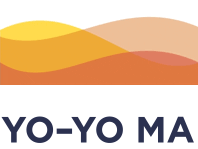I was seven when I arrived in America with my parents and sister, trading the slate roofs and baguettes of Paris for the skyscrapers and Wonder Bread of New York. It was 1962 and the energy and possibility of post-war renaissance still crackled on both sides of the Atlantic.
I have found myself thinking of that feeling often in the past six months, as we fight a different type of world war, this time against a virus. I think about the kind of world that felt possible to an immigrant family arriving to a new life, and the kind of world I want to leave my grandchildren.
In 1948, seven years before I was born, the United Nations General Assembly met for the third time ever. The meeting was in Paris, just across the river from my father’s apartment; the memory of the German occupation was still fresh. In what must have been a moment of profound hope for the future, the new group came together and ratified a Universal Declaration of Human Rights, describing the world they wanted to build, defined by equality, opportunity, and safety for all.
I must have learned about the Declaration in some forgotten classroom, but it hit me again in a flash this summer thanks to the composer Max Richter and his collaborator Yulia Mahr, who layered a tapestry of music and images over the voice of Eleanor Roosevelt reading the Declaration in a piece called “All Human Beings.”
We may have failed in so many ways to deliver on the promise of that document, but every generation has a chance — an obligation — to do better, to imagine and create a world that works for all of us.
To me, doing better begins with culture — the point at which the arts, sciences, and society intersect.





